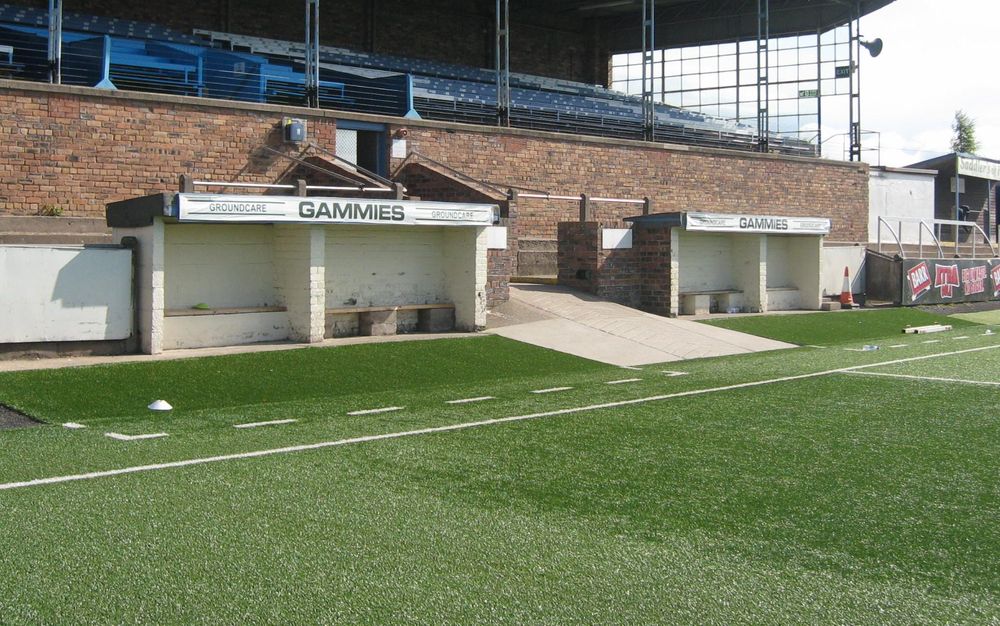
A former PT Instructor in the Royal Navy, Steve Riley hails from Newcastle but was based in Portsmouth.
He was captain of the Royal Navy representative team and vice-captain of the Combined Services.
As a defender, he served the likes of Basingstoke Town, Fareham Town, Bashley, Havant Town, Newport Isle of Wight and Fleet Town.
He returned to Bashley in 2005 as player-manager, initially in the Isthmian League, and after switching back to the Southern League, steered the team to the 2006/07 Division One South & West title in considerable style, scoring 111 goals and totalling 102 points, finishing a massive 28 points clear of Paulton Rovers, who ended up as runners-up.
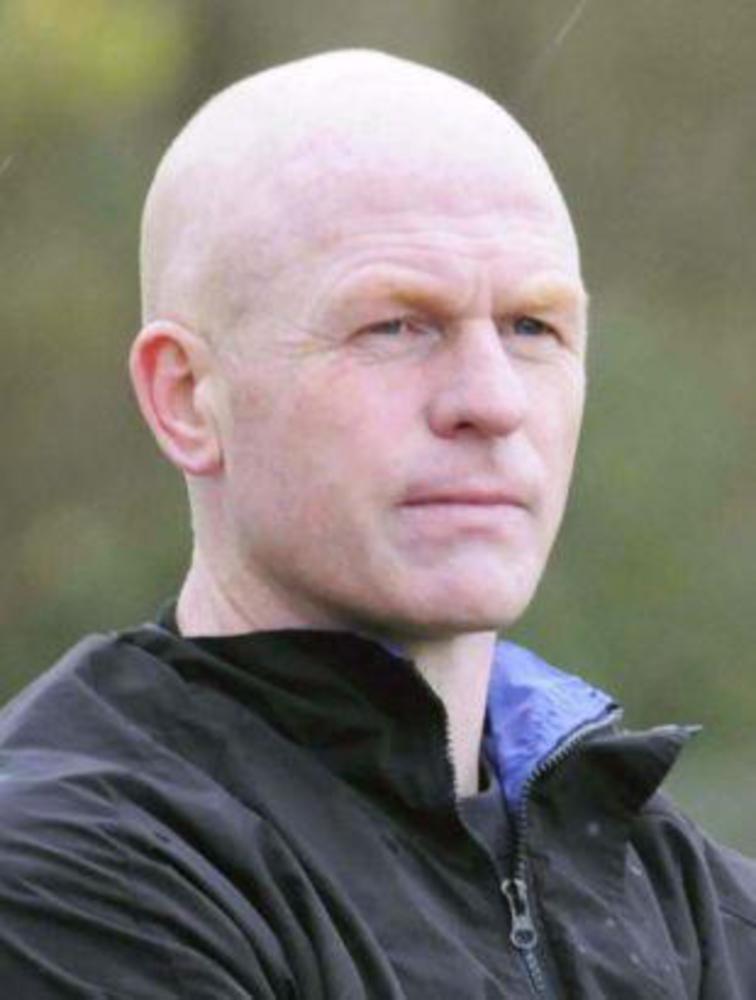
Steve Riley
Riley established Bashley in the Premier Division with solid finishes, including fifth and seventh-place finishes before leaving to take over as manager of league rivals AFC Totton in the summer of 2012.
However, the Stags were relegated at the end of his second season in charge.
Southampton-based Riley decided to have a break from football after leaving Totton by mutual consent in March 2015.
However, he returned to Bashley as manager in July 2015, retracing his steps to the New Forest after a new Board had taken over at Bashley Road.
He replaced ex-Chelsea defender Dave Stride, who had barely been in charge for six weeks but lost his job on the back of a poor run of pre-season results and a lack of player signings.
But it wasn`t a happy return for Riley, who resigned following a run of defeats and Tom Prodomo took charge, but the season ended with no wins, two draws, a bottom finish and relegation back to the Wessex League.
Portsmouth-born Denis Hunt began his playing career with Gillingham and went on to feature 355 times for the first team and score 6 times between 1958 and 1968, putting him 13th on the club’s all-time appearance records list.
He was part of the team that won the Division Four title in 1964 and was an ever-present at left-back prior to his move to Brentford in 1968.
His spell at Griffin Park was a fairly brief one, however, and after making a dozen appearances, he moved down to Southern First Division club Folkestone as player-manager in 1969.
The club finished fourth in 1970/71 and earned a place in the Premier Division as the league expanded to three divisions.
He went on to manage Folkestone for four years – including their first season as Folkestone & Shepway.
During the 1973/74 season, Hunt and former Chelsea and England defender Peter Sillett effectively swapped clubs, with Hunt moving to Southern Division One South outfit Ashford Town.
A modicum of progress was made by the Ashford team in reaching the FA Cup First Round in 1974/75 with a home tie against Division Three outfit Walsall.
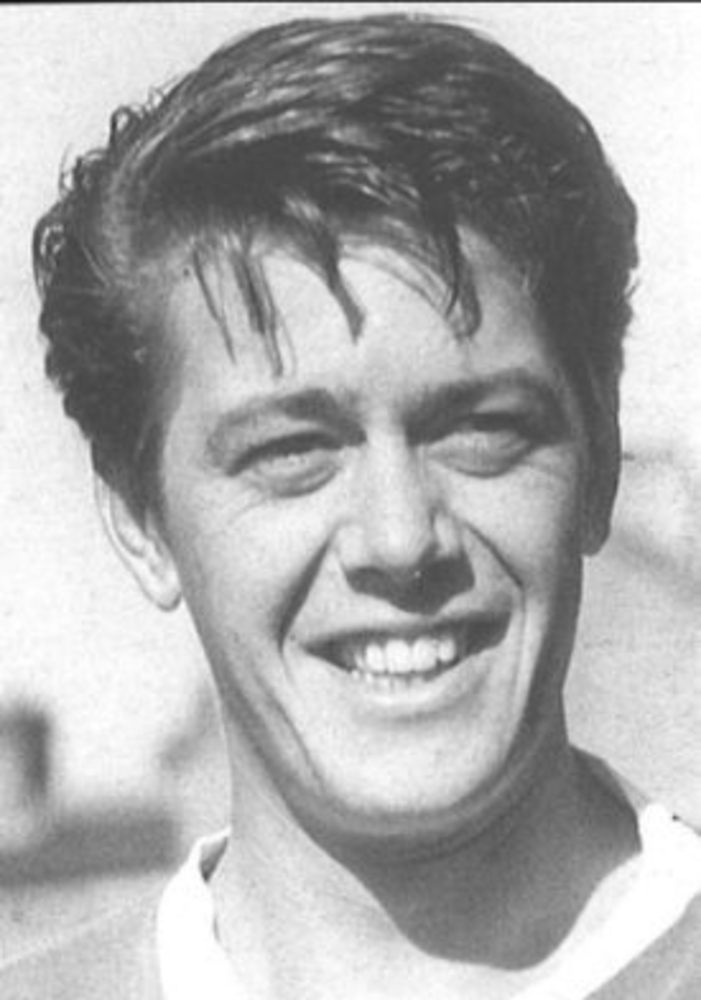
Denis Hunt
The originally scheduled Saturday fixture was postponed owing to a waterlogged pitch and moved to mid-week. As Ashford's floodlights were not deemed of the required standard for an evening game the match was played on the following Wednesday afternoon. In front of an enthusiastic crowd that included many schoolboys allowed the afternoon off from their schools Ashford lost to Walsall 3-1.
But Ashford hit the headlines in the press for all the wrong reasons early in 1977 with a story that the club was £23,000 in debt and two weeks from bankruptcy.
There followed a drastic re-organisation and effort both on and off the field which, over several years, restored financial equilibrium. Unfortunately, one of the adjustments was on the playing front and Hunt left.
In May 1977 he took over as manager of Margate and guided the club to the Southern League First Division South title and League Merit Cup success.
He resigned in November 1978 with Gate near the foot of the Premier Division table – they went back down at the end of that season.
Hunt, who ran a newsagents in Folkestone with his wife, also played for and managed the British Lion pub team in the Folkestone Sunday League, taking them to the local league cup final which was played at Cheriton Road.
He passed away in January 2019, aged 81.
Swindon-born Adi Viveash came up through his home-town club`s youth system and was originally a forward.
But by the time he broke into the Swindon Town first team in 1990, he had moved back into a central defensive position.
Ossie Ardiles handed Viveash his senior debut in September 1990, when he came on as a substitute in an unfamiliar midfield role in a 3-1 defeat at home to Middlesbrough. It proved to be an embarrassing start to Viveash's Town career, when he was substituted himself less than 40 minutes after coming on!
The following three seasons saw him make just 20 appearances - none at all in the Premier League season of 1993/94, and Viveash spent two periods on loan at Reading.
Having not made a single appearance during John Gorman's reign at the County Ground, it seemed Viveash was to get another chance under Steve McMahon, when he played in 14 of the final 15 games of the 1994/95 season. However, Viveash found himself out in the cold again - and he joined Barnsley on loan at the beginning of the following season.
Two months later, he was allowed to join Walsall on a free transfer after totalling 54 games for Swindon.
Viveash became club captain at Walsall, winning the club's player of the year award, and leading them to promotion to Division One in 1999.
He re-joined Reading on a permanent basis in July 2000 and was part of their promotion-winning side in 2002.
When his contract expired at the end of the 2002/03 season, despite being offered an extension, he was persuaded to return to the County Ground on a two-year deal.
He started the season on the left side of a three-man defence - and played in the first 14 league matches of the season but was dropped after a 3-0 defeat at Chesterfield.
He joined Kidderminster Harriers on a loan in March 2004 and upon his return, he made one substitute appearance for the Town before the end of the year.
Viveash was again loaned to Kidderminster prior to the start of the 2004/05 season, and it became clear that he was surplus to requirements at the County Ground. When the loan expired, he appeared on the bench just once for Swindon in September, without getting onto the pitch, before he mutually agreed to end his contract with the club in December 2004, joining Conference outfit Aldershot Town.
He was released by Aldershot in January 2005 and joined Southern League Premier Division Cirencester Town later that month.
In his one and a half seasons as a player with the Centurians, he proved to be a hugely influential player, and provided very valuable advice and guidance for other members of the first-team squad.
He left the club at the end of the 2005/06 season to concentrate on completing his coaching qualifications, but he re-joined the club in May 2007, this time as manager together with his assistant, Paul Hunt.
In addition to managing Cirencester, Viveash also worked hard on building his growing reputation in coaching and in October 2008, after 16 months in charge, he resigned as manager to take up a superb opportunity with Chelsea's youth academy.
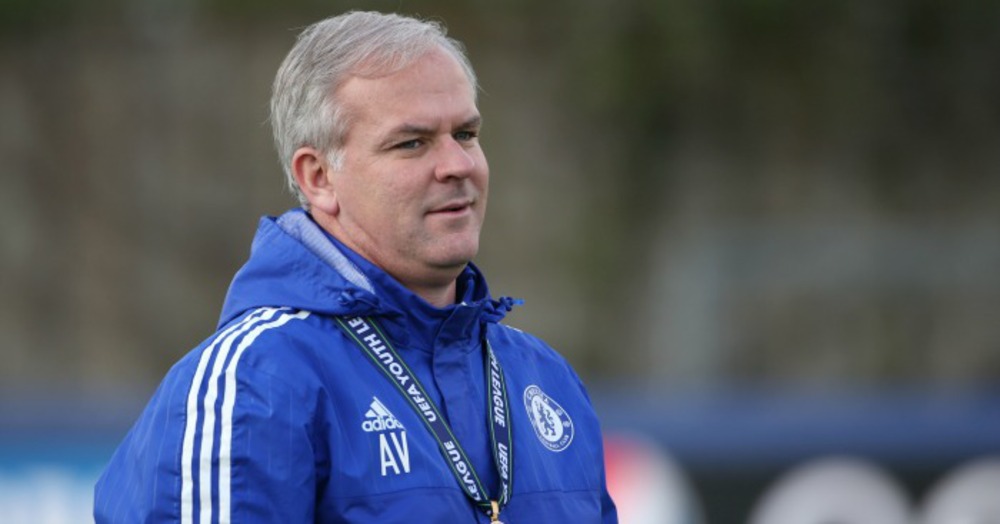
Adi Viveash
After nine successful years with the Chelsea academy as development squad manager, Viveash left to become assistant to manager Mark Robins at Coventry City.
Whilst with Chelsea, Viveash led Chelsea in the UEFA Youth League which is contested by under-19 teams from leading clubs across Europe.
With only one defeat in 20 games in the competition over two years, Chelsea lifted the trophy in 2015 and successfully defended it the following year.
Eight players from those UEFA Youth League squads have gone on to make Chelsea first-team debuts and numerous others for European and Football League clubs on loan.
Jack Taylor was born in Barnsley in February 1914 and took up football at an early age.
He played for local junior side Worsbrough Bridge and was taken onto the ground staff at Wolverhampton Wanderers in 1931.
He enjoyed success at Molineux in the 1930s, forming a fine full-back partnership with his brother Frank in the promising side built by Major Frank Buckley.
After making over 80 appearances for Wolves, Taylor moved on before the Second World War to Norwich City, playing 50 games, before turning out as a `guest` for Barnsley and Watford during the conflict.
He re-joined Frank Buckley in July 1947 when he signed for Hull City, where he ended his League career with another 80-plus games.
Taylor went into management, serving his apprenticeship at Weymouth in the Southern League as player-boss initially.
He led the Terras to second place in 1951/52 and that attracted the attention of Queens Park Rangers when they were looking to appoint a new manager in June 1952, after finishing bottom of the Third Division (South).
He took over from former Leeds United forward Dave Mangnall and remained at Loftus Road for seven years without threatening promotion or being relegated.
In 1959, Leeds United were on the lookout for a new manager after the departure of Bill Lambton.
Arthur Turner, manager of Headington United, was approached and was favourite to take over but changed his mind at the last minute. Former Leeds captain Tommy Burden was also offered the post, and again turned it down, leaving the way clear for Taylor to step in.
His first task was to seal the departure of some of the club's stalwarts, which didn`t endear him to the supporters.
Leeds were relegated to the Second Division and Taylor resigned in March 1961 to be succeeded by a certain Don Revie!
Taylor died in his home-town of Barnsley in February 1978, aged 64.
Doncaster-born Roy Bicknell will always be remembered as the man who led Clacton Town to the Southern League Division One glory in 1959/60 - the highest achievement ever recorded by the Seasiders.
Before joining the club in Old Road, Bicknell had played 29 games for Colchester United, four of them in the FA Cup.
He had originally been with Wolverhampton Wanderers, turning professional in September 1943.
Whilst at Wolves, his appearances were somewhat restricted by Stan Cullis and during the wartime era, he played twice for Wolves and once as a guest for Swindon Town before joining Charlton Athletic in 1947, playing 7 games as well as representing London in a game in Belgium in 1948.
Two years later, Bicknell joined Bristol City, making 21 appearances before moving on to Southern League side Gravesend & Northfleet.
He then joined Colchester United in June 1952 and after his first-team career had finished, he was made captain of the reserves.
He was, however, forced to retire in September 1955 and then moved to Clacton to take over the reins as manager in 1959.
He led the club from the Southern League South East into the Southern League Premier Division in his first season in charge.
Bicknell even turned out as a player in emergencies, including one such game at eventual champions Oxford United in February 1962 at the age of 36.
In October 1963, he obtained a permit to trade as a turf accountant and was obliged by FA rules to sever his ties with Clacton.
In the late 1960s, he returned to management with Eastern Counties League side Brantham Athletic and for 29 years thereafter, ran the Hythe Coffee Shop with former Colchester team-mate, Len Jones.
He then became an usher at the County Court before retirement in May 1987.
He passed away in Colchester in January 2005, aged 78.
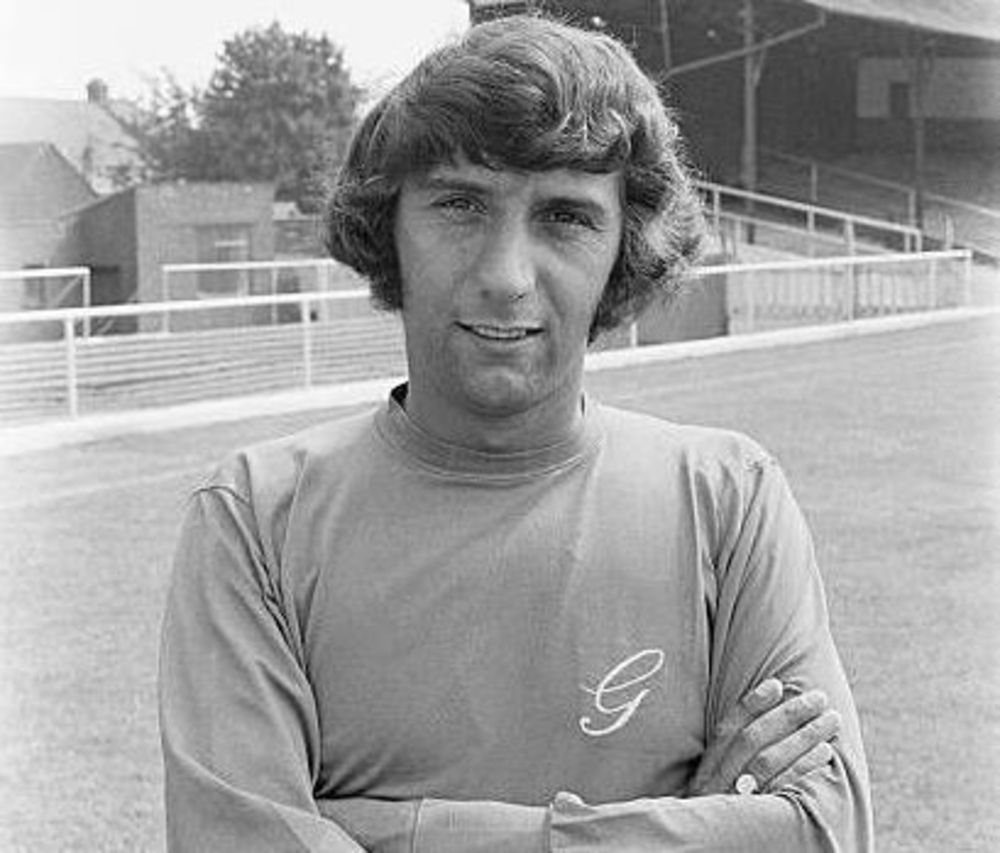
Brian Yeo
Striker Brian Yeo put aside the disappointment of being released by his boyhood club Portsmouth to become a legend at Gillingham.
Worthing-born Yeo was released by Pompey at the end of the 1962/63 campaign without managing to break into the league side at Fratton Park, playing twice in the FA Cup.
Aged 19, Freddie Cox took him to Gillingham on a free transfer in July 1963 along with Rodney Taylor, Cox had previously been their boss at Fratton Park.
It took Yeo a while to win a regular place, in 1964/65 he scored 6 goals in 10 games, this, however, included 5 in 2 matches, a brace against Shrewsbury Town plus his first senior hat-trick against Luton Town, both games ending 5-0.
The young forward certainly got off to a flyer, scoring just 4 minutes into his debut against Torquay United at the Priestfield Stadium in October 1963 and went on to complete his first season with 2 goals in 11 appearances.
In his first two seasons at the club, he scored 50 goals in total but many of them were for the reserves, including a double hat-trick in a 9-0 victory over Gravesend & Northfleet reserves in a Metropolitan League match.
During the 1968/69 season, Yeo top-scored with 18 goals and this led to the recognition of him becoming the first-ever winner of the Gills player of the year award.
He was awarded a testimonial game towards the end of the 1972/73 season and a crowd of 12,292 packed Priestfield Stadium for the game against the then mighty West Ham United.
He was top scorer again in the 1971/72 campaign with 24 goals and his second goal of the game in a 3-3 draw at Scunthorpe in April saw him become only the second Gills player in history to score 100 goals and he went on to break Brian Gibbs` 110 goal record the following season.
He was honoured at the end of the 1973/74 season when he was selected by his fellow professionals in the PFA Division Four team-of-the-year alongside team-mate Dave Peach.
It was the 1973/74 Fourth Division promotion-winning season though that the striker really hit the headlines.
His goal against Lincoln City in April took him to 31 goals which equalled Ernie Morgan's club record. His tally, the highest in the Football League, included hat-tricks against Scunthorpe and Northampton.
Having shelved initial plans to retire, he continued into 1974/75 season and scored 6 goals in 25 appearances.
His last goal coming in the 2-0 win over Grimsby Town and a week later at Crystal Palace he made the last of his 387 appearances.
After retiring from playing in May 1975, he went on to manage Kent sides Folkestone and Canterbury City.
For many years he ran a newsagents in Lower Gillingham and worked as a delivery driver for the Kent Messenger.
Clydebank-born Billy Jeffrey was a silky skilled midfielder who could also put his foot in when necessary!
He also happens to be one of the nicest guys in the game and someone I am honoured to call a friend.
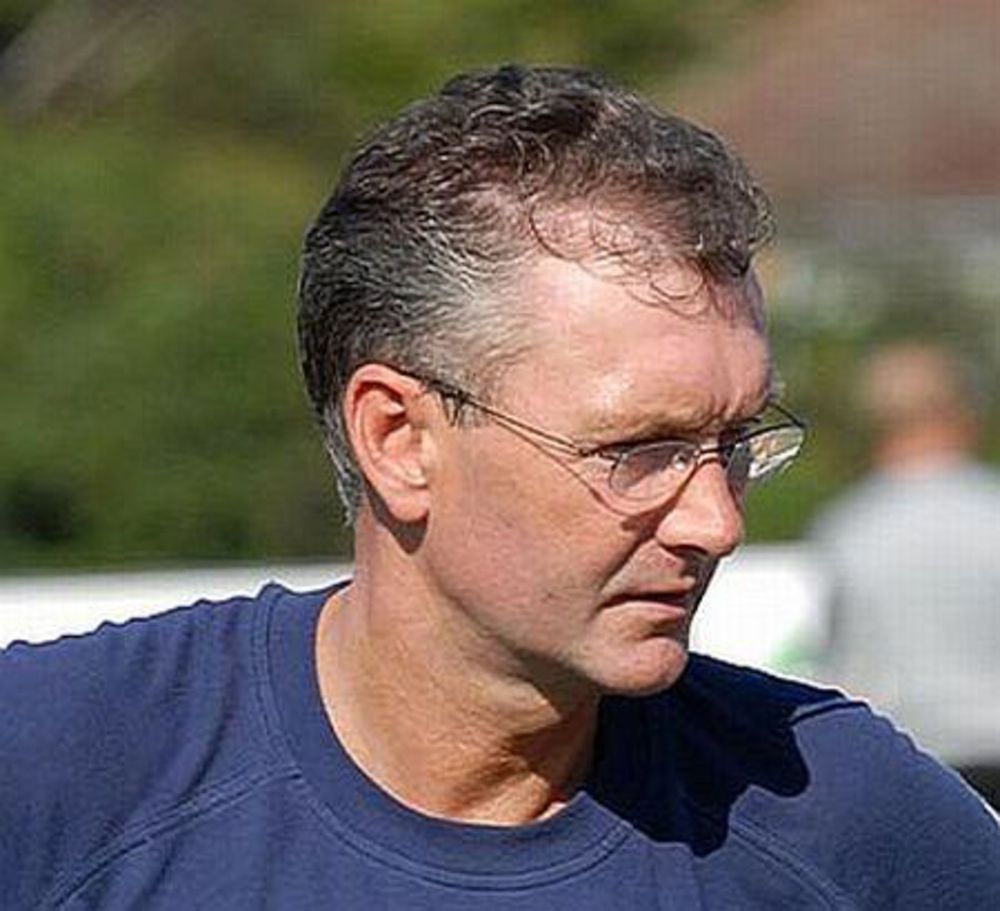
Billy Jeffrey
After winning Scottish Youth caps, he came south to join Second Division Oxford United in 1972, where he was the youngest ever player at the time culminating in a spell as the club captain.
He went on to play 353 games for the club in the Second and Third Divisions, scoring 26 goals.
After leaving the U`s in 1982, Jeffrey had a season with Blackpool before joining Fourth Division rival Northampton Town, where he made a further 56 appearances, scoring 5 goals.
In 1984, Jeffrey joined Conference side Kettering Town under the management of former Nottingham Forest defender David Needham.
He had a spell as player-coach with the Poppies and then departed midway through the 1986/87 season to venture `down under` to finish off his playing career and join his friend Peter Denyer with Aussie side Blacktown City.
Upon his return to this country, Jeffrey joined up with ex-Kettering stalwart Roger Ashby as his assistant manager at United Counties League Premier Division side Irthlingborough Diamonds.
He remained with Ashby when Diamonds merged with Rushden Town to become Rushden & Diamonds in 1992.
Later, when Ashby left, he became assistant to Brian Talbot at Nene Park.
But in 1998, Jeffrey ventured on his own managerial career with Stamford where, after securing four consecutive top-seven finishes in the Southern League Eastern Division, he led the club into the Premier Division for the first time in 2004.
Then, after six years with the Daniels, in June 2005, was appointed as the new Rugby Town manager following Tony Dobson's departure after spending six years at Stamford.
He started with the mammoth task of finding an entirely new squad as most of the 2004/05 team left with Dobson to Solihull Borough.
He made some shrewd signings though and led the team to a credible 15th place finish.
His second season in charge saw the arrival of several young talents and Rugby started the season very well and by November were second in the table having had a reasonable run in the FA Cup. However, Valley had a barren run and eventually finished the season in 17th place and Jeffrey resigned in December 2007.
In March 2009, Jeffrey was appointed as manager of Southern Premier Division outfit Banbury United, replacing Kieran Sullivan, who had resigned after a 5-0 defeat at Chippenham Town.
He resigned as Banbury`s manager after two reasonable seasons in charge in July 2011 after being told by a specialist he needed double hip replacement surgery.
That proved to be the end of his managerial career. However, since September 2013, Jeffrey has been scouting for Newcastle United and is currently Lead Area Scout for the Premiership club.
Stan Harland was born in Liverpool in June 1940 joining New Brighton and then Everton, although he never made an appearance for the Toffees.
He moved to Bradford City making over 120 appearances and 77 for Carlisle United before tasting success at Swindon Town.
He signed at the County Ground the day before England won the World Cup in 1966 and went on to become a club `legend`.
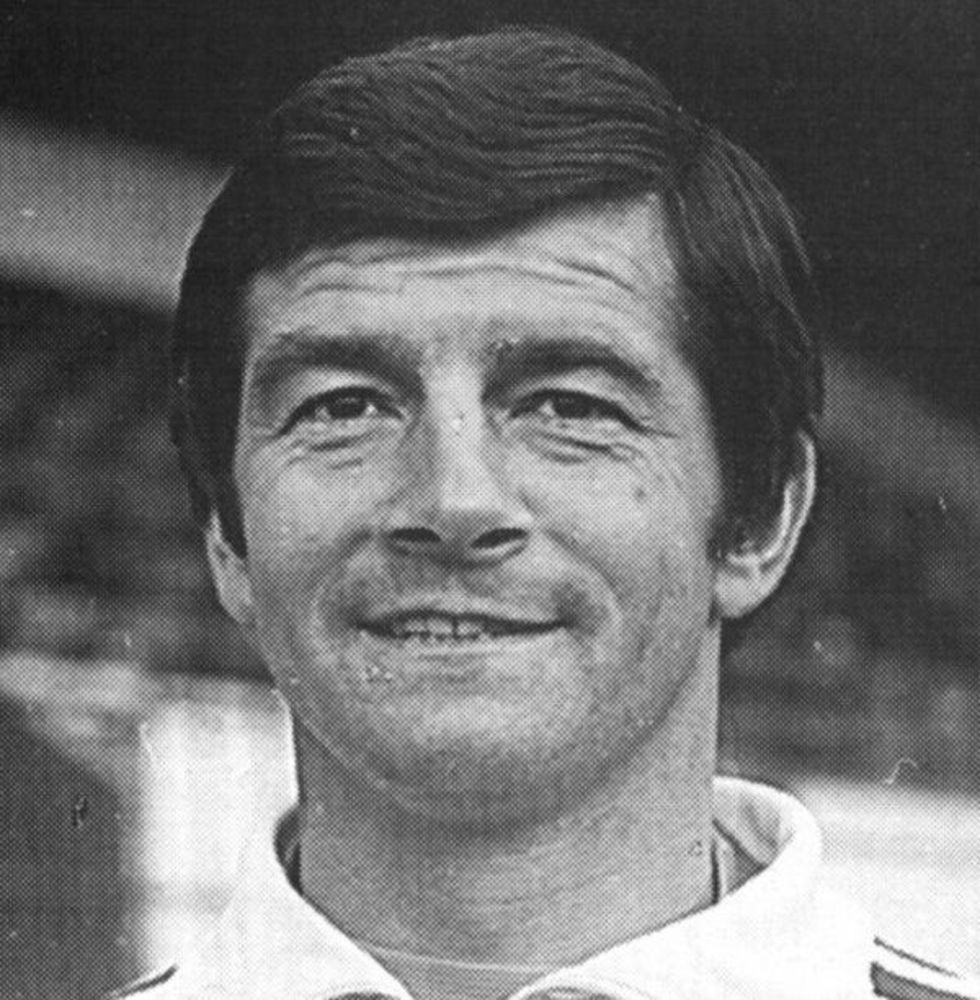
Stan Harland
Harland was an ever-present in the Town side for the next three seasons, forming defensive partnerships first with Mel Nurse, and then Frank Burrows.
Following an injury to John Trollope at the start of the 1968/69 season, Harland was handed the club captaincy, a role which he retained even after Trollope's return.
He led the Town through some of their most successful seasons ever - a spell which included receiving the League Cup from Princess Margaret after the surprise 1969 Wembley win over Arsenal, promotion to Division Two, two Anglo-Italian trophies and the Swindon's highest league finish.
After the club's disappointing 1970/71 campaign, they made a sensational pre-season signing - Dave Mackay arriving from Derby County.
This move was the beginning of the end of Harland's Town career, firstly, he was moved into a midfield position to accommodate Mackay, then, when Mackay took over as manager, he was dropped from the side completely.
Unhappy with this treatment, Harland asked for a transfer, and he was sold to Birmingham City for £15,000 in November 1971.
He went on to help City to win promotion to Division One.
His professional career was ended through injury, although he moved to become player-manager of Southern League Premier Division club Yeovil Town at the age of 35.
He took the Yeovil job after Derek Dougan and Mike England had turned it down, so clearly wasn’t first choice.
However, he took Yeovil into Europe for the first time when they entered the Anglo-Italian Cup before leaving in 1978.
He later took charge at Gravesend & Northfleet in the Southern League after they had suffered relegation from the Alliance Premier League in 1982.
He went on to work as assistant-manager and coach at Portsmouth but remained living in the Yeovil area and worked at a local Asda store right up to his untimely death in August 2001 at the young age of 61.
Midfielder Steve MacKenzie will be best remembered for scoring one of the best volleyed goals ever seen at Wembley in the 1981 FA Cup Final replay for Manchester City against Tottenham Hotspur.
However, it`s rarely replayed these days as it was outdone as his equaliser was outshone by Spurs' Argentinian World Cup star Ricky Villa, who scored arguably THE best goal seen in a Wembley final.
MacKenzie was born in Romford and is a cousin of former Arsenal and England captain Tony Adams.
After starting his career with Crystal Palace, he was signed by Malcolm Allison for Manchester City in July 1979 aged 17 for £250,000 that was a record for a teenager at the time – and without managing a first-team game for the Eagles.
He missed just three matches in the season 1980/81 that ended with the 100th FA Cup final at Wembley against Tottenham Hotspur - the original game ended 1-1.
At the start of the following season, MacKenzie joined West Bromwich Albion for £650,000 where he made over 170 appearances and scored 23 goals. He also won three England under-21 international caps.
He returned to London to sign for Charlton Athletic in 1987 and added a further 100-plus matches to his tally with 7 goals.
Short spells with Sheffield Wednesday and Shrewsbury Town followed as injuries took its toll.
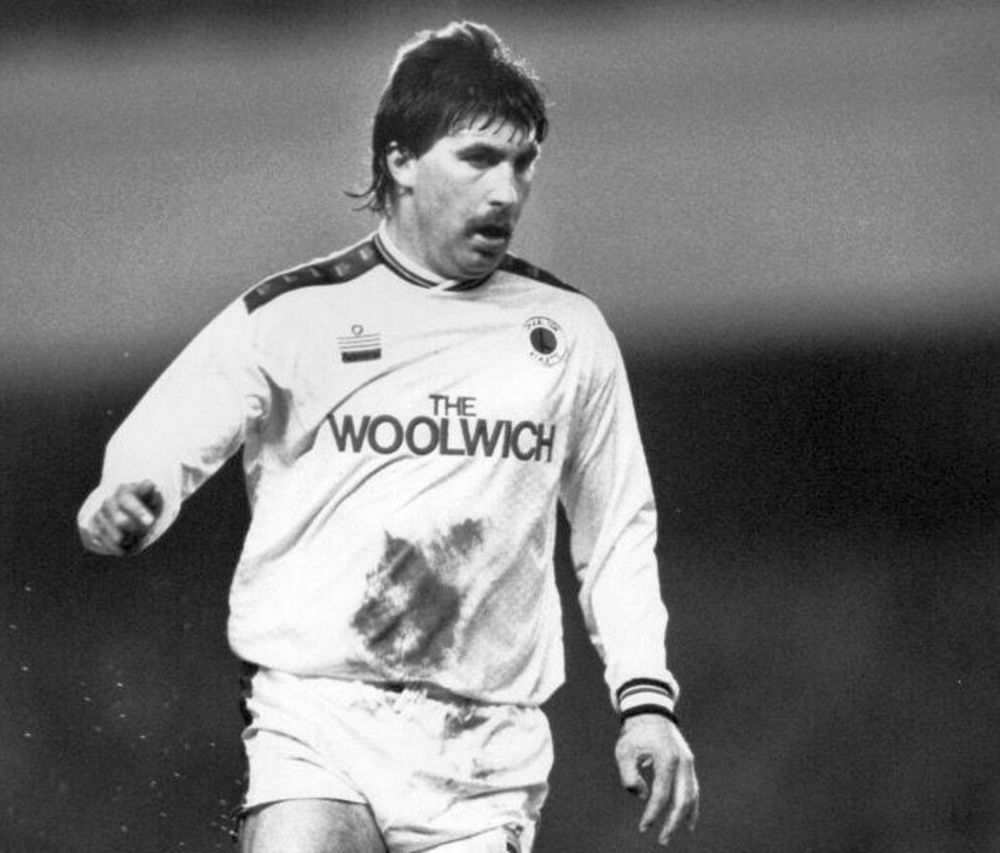
Steve MacKenzie
In 1994, MacKenzie dropped into non-League football as a player with Midland Alliance side Willenhall Town.
Then, in 2000, MacKenzie was appointed as manager of Southern League Division One West club Atherstone United.
The Adders finished ninth in his two seasons in charge before he left Sheepy Road in March 2002.
He did make one further appearance in the Southern League and that came in January 2004 for Gresley Rovers, who were suffering an injury crisis at the time.
Manager Gary Norton asked MacKenzie if he would help out as he had been turning out for the Albion Old Stars and was `reasonably` fit!
He came off the bench to score for Gresley in a 3-0 win against Shepshed Dynamo in the Southern Division One West.
In more recent times, he had been working for the Press Association covering matches.

Most clubs are looking for volunteers. Find out more on the button below:
www.PitchingInVolunteers.co.ukAll the news and results in one place.
REGISTER